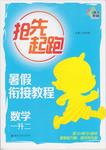题目内容
Prisoner Mitchell King had a visitor— his wife. King was serving a six-year prison term in Auckland, New Zealand for armed robbery. But his wife didn’t want to be away from him for that long. So they held hands and they stuck. She’s rubbed her palms with super glue.
Their new-found closeness was short-lived. And their separation painful. Her technique is not one I'd recommend(introduce) for a closer relationship.
But if you want more closeness; if you desire relationships that are deeper and broader, more meaningful and longer-lasting, then remember the word "TRAVEL."
T is for TRUST. Trust is the glue that holds people together (not Super Glue). A relationship will go nowhere without it.
R is for RESPECT. "Do not save your loving speeches for your friends till they are dead; speak them rather now instead," writes Anna Cummins. It's about respecting others and letting them know that you value them.
A is for AFFECTION. Sometimes affection means love. Sometimes it means a touch. Always it means kindness.
V is for VULNERABILITY(harm). Though we may feel afraid to let another too close, no relationship will go anywhere without risking vulnerability. Entrepreneur Jim Rohn says, "The walls we build around us to keep out the sadness also keep out the joy." And the love.
E is for EMOTIONAL INTIMACY(亲密). Learn to be open. Learn to communicate freely. What kinds of relationships you make are largely determined by how openly you have learned to communicate.
L is for LAUGHTER. Victor Borge got it right when he said, "Laughter is the shortest distance between two people." It's also the most enjoyable.
For relationships that can really go somewhere, just remember the word "TRAVEL." Then enjoy the trip!
6.The author intends to _________ by showing us the example in Paragraph One.
A. condemn the wife for her silly behavior
B. introduce new ways for closer relationships
C. tell us King and his wife would never be separated
D. encourage us to follow the wife’s technique
7.The underlined word “it” in Paragraph Four refers to?
A. Trust. B. Glue. C. Closeness. D. TRAVEL
8.Which of the following agrees with what Jim Rohn says?
A. Walls should be built to keep out the sadness.
B. It’s unnecessary to avoid vulnerability for closer relationships.
C. Love will be kept out if you let another too close.
D. We shouldn’t let another too close because of vulnerability.
9.What does Victor Borge really mean by his word in the ninth paragraph?
A. Laughter will keep the shortest distance.
B. Laughter will make a closer relationship.
C. No relationship will go without laughter.
D. Laughter is necessary to make friends.
10.What would be the best title for this passage?
A. Relationships. B. The story of a prisoner.
C. A technique for good relationships. D. Tips on closer relationships.
6---10 BABBD
本文介绍了如何加深友谊。
6.B 意图推断题。作者从一个极端的故事引出了写作内容,即介绍如何加深友谊。
7.A 词义猜测题。上上文看,it指代的是trust这一概念。
8.B 细节理解题。引用Jim Rohn的话是为了说明,如果担心因关系太近会造成伤害,是不明智的,因为与他人保持距离的同时,也就把朋友间的欢乐及关爱给隔开啦。
9.B 细节理解题。笑可以拉近两人的距离,可以促进友谊的发展。
10.D 主旨大意题。从文章内容和文章体裁可以准确判断答案应为D。
6.B 意图推断题。作者从一个极端的故事引出了写作内容,即介绍如何加深友谊。
7.A 词义猜测题。上上文看,it指代的是trust这一概念。
8.B 细节理解题。引用Jim Rohn的话是为了说明,如果担心因关系太近会造成伤害,是不明智的,因为与他人保持距离的同时,也就把朋友间的欢乐及关爱给隔开啦。
9.B 细节理解题。笑可以拉近两人的距离,可以促进友谊的发展。
10.D 主旨大意题。从文章内容和文章体裁可以准确判断答案应为D。

练习册系列答案
 南大教辅抢先起跑暑假衔接教程南京大学出版社系列答案
南大教辅抢先起跑暑假衔接教程南京大学出版社系列答案
相关题目

 You should always study in the same place. You shouldn’t sit in a position that you use for another purpose. For example, when you sit on a sofa to study, your brain will think it is time to relax. Don’t watch TV while you are studying. Experts warn that your concentration may be reduced by 50 percent if you attempt to study in this way. Always try to have a white wall in front of you, so there is nothing to distract (make less concentrated) you. Before sitting down to study, gather together all the equipment you need. Apart from your textbooks, pens, pencils and knives, make sure you have a dictionary. If your study desk or table is needed when you are not studying, store all your equipment in a box beside it.
You should always study in the same place. You shouldn’t sit in a position that you use for another purpose. For example, when you sit on a sofa to study, your brain will think it is time to relax. Don’t watch TV while you are studying. Experts warn that your concentration may be reduced by 50 percent if you attempt to study in this way. Always try to have a white wall in front of you, so there is nothing to distract (make less concentrated) you. Before sitting down to study, gather together all the equipment you need. Apart from your textbooks, pens, pencils and knives, make sure you have a dictionary. If your study desk or table is needed when you are not studying, store all your equipment in a box beside it.